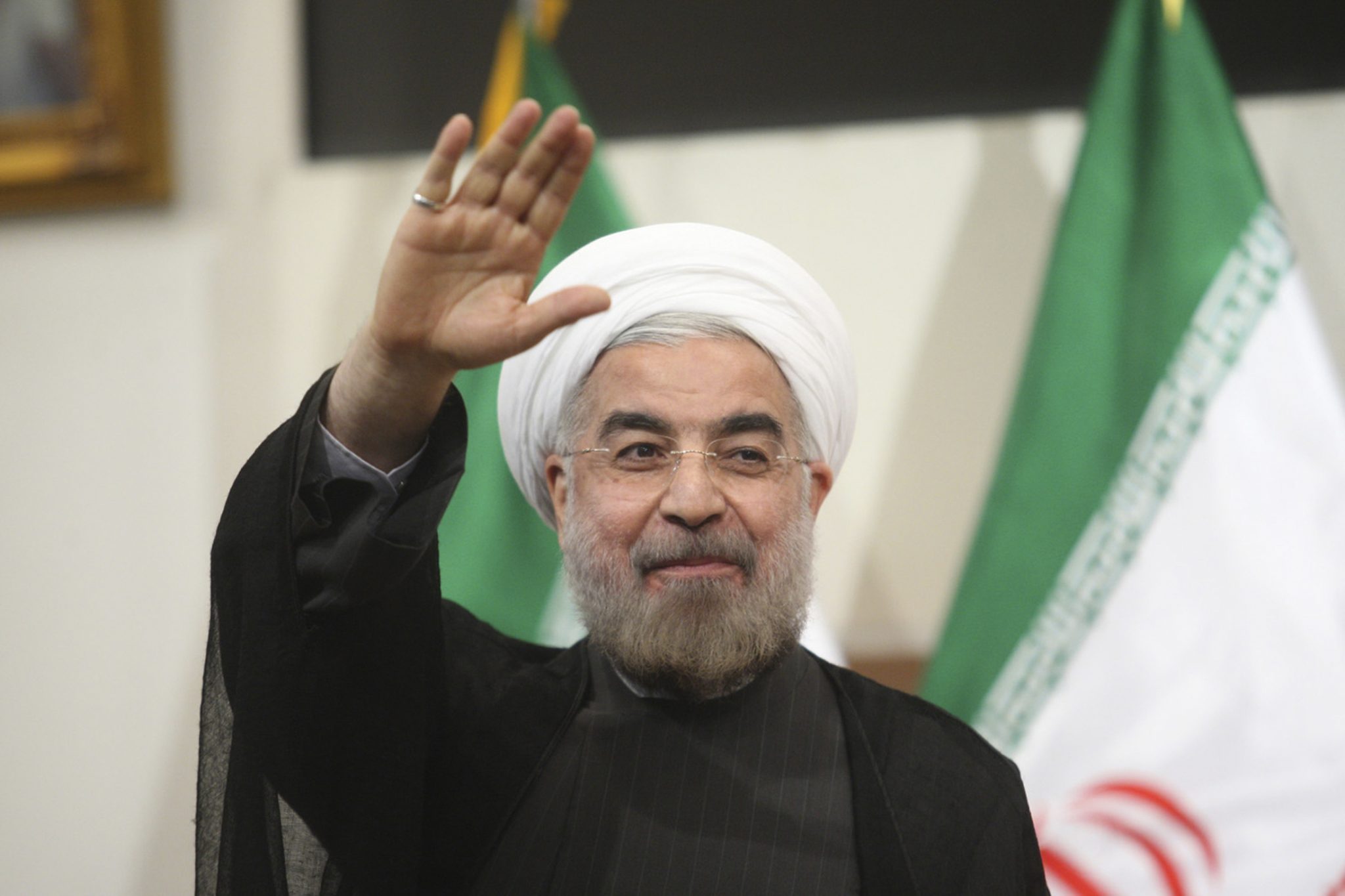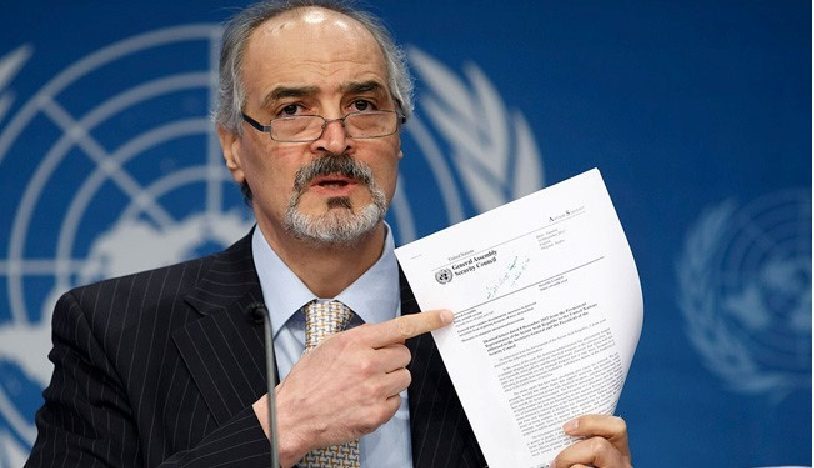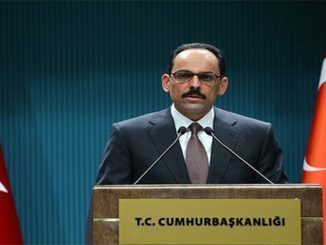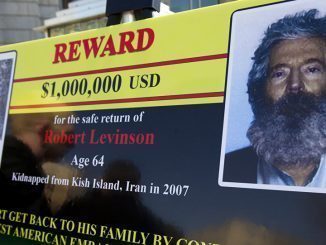
Iranian President Hassan Rouhani is slated to address the UN General Assembly session that opens September 20. It will be Rouhani’s fourth such address, but this year he will notably only stay in New York for less than 48 hours.
Rouhani’s whirlwind visit to the United States comes at a time when he finds himself under increasing fire at home by hard-liners, who charge that the most important achievement of his foreign policy, the Joint Comprehensive Plan of Action (JCPOA), is “useless” and a “stain of disgrace” on Iranian history. Indeed, since the signing of the nuclear agreement in July 2015, Iranian hard-liners have relentlessly sought to devalue Rouhani’s success in ending the nuclear crisis while portraying it as another Treaty of Turkmenchay.
The 1828 Treaty of Turkmenchay, signed by Qajar Iran and tsarist Russia, saw Iran cede many of its northern territories to Russia after suffering military defeat. To this day, Iranians invoke this treaty as a symbol of national surrender and humiliation. In this vein, Seyyed Morteza Hosseini, a hard-line member of parliament, said on May 25, “The story of the JCPOA in history will be like the Treaty of Turkmenchay when it comes to the posterity of this country.” He added, “People should make a right decision in the [May 2017] presidential election and not let [Iran] be humiliated.”
The obstacles hampering implementation of the nuclear deal, which many Iranians see as rooted in“stonewalling” by the United States, is giving hard-liners in Tehran more pretexts and power to expedite their plan to damage Rouhani’s standing ahead of the May 2017 presidential election.
On Aug. 20, hard-liner and former chief nuclear negotiator Saeed Jalili, who unsuccessfully contested the 2013 presidential vote, took a swipe at Rouhani over his openness for a dialogue with the West, saying, “If smiling at America would work, [the] 1953 [coup instigated by the United States and Britain to depose Prime Minister Mohammad Mossadeq] would not have happened.”
During the negotiations leading up to the nuclear deal, and even after agreement was reached, Rouhani supporters repeatedly emphasized the accord’s positive impact on the Iranian economy, which suffered greatly due to sanctions that have been now lifted. Yet, the speed of the economy’s recovery remains slow, and the economic windfall of the nuclear deal is not what Iranians expected, owing largely to the “anxiety of foreign investors and banks about facing punishment” for re-engaging with Iran. While nuclear-related sanctions have been lifted, primary US sanctions — which, for example, ban dollar and so-called U-turn transactions with Iran, remain in place.
In an interview with the Guardian on Sept. 16, Ali Akbar Salehi, head of Iran’s Atomic Energy Organization, said, “As has been stated by the International Atomic Energy Agency, Iran has remained committed to its commitments, while the other side — it’s very clear now to public opinion and it’s not a secret — has not really delivered on the promises: that the sanctions would be removed and that banking transactions would go back to normal, that trade would speed up and economic relations would be enhanced. These have not been materialized to the extent that we expected.”
Given this situation, Rouhani appears to have put implementation of the nuclear deal at the top of his agenda for his short visit to the United States. According to Salehi, a foreign ministerial meeting between Iran and the six world powers with which Tehran negotiated the JCPOA is scheduled to be held in New York. It will be the first such meeting since the JCPOA’s implementation. The focus will be on how to collectively tackle the problems hampering implementation.
A fruitful outcome to this meeting and other efforts by Rouhani and his foreign minister, Mohammad Javad Zarif, while in New York would be in the interests of both Iran and the United States. Indeed, if the nuclear deal is fully implemented, it could aid the recovery of the Iranian economy and — perhaps as a consequence of that — pave the way for talks between Washington and Tehran on regional issues.
In an Aug. 2 interview on Iranian state television, Rouhani highlighted the “obstruction of the [implementation of the nuclear] deal,” saying, “If the US had implemented the JCPOA accurately and with goodwill, we would have trusted them, and we would have now been ready to negotiate on other issues that could have been in the interest of the region, the US, ourselves and others.”
In this vein, one of Rouhani’s top priorities in New York might also be Syria. Indeed, the UN Security Council is slated to hold a special session Sept. 21 to discuss possible political solutions to the Syrian conflict. Moreover, as stated by the UN special envoy for Syria, Staffan de Mistura, a ministerial meeting on Syria is also scheduled for Sept. 21 — the target date for ensuring that all actors in the Syrian political process are involved in making headway toward a settlement. Al-Monitor has learned through an Iranian diplomatic source who spoke on condition of anonymity that Zarif will likely attend the ministerial meeting on Syria.
In a Sept. 13 op-ed in The New York Times, Zarif called for efforts by the world body to tackle militant extremism. He wrote, “There needs to be coordinated action at the United Nations to cut off the funding for ideologies of hate and extremism, and a willingness from the international community to investigate the channels that supply the cash and the arms.”
Given the timing and focus of Zarif’s op-ed, it appears that Rouhani will emphasize his own previous calls for resolving regional crises — including the conflicts in Yemen and Syria — through political negotiations and, like Zarif, urge the “fostering of greater dialogue between religions and sects to counter medieval fanaticism.”
In 2013, in his first speech to the General Assembly after being elected, Rouhani addressed the issue of terrorism around the world and called on the international community to embrace Iran’s vision for how to forge a World Against Violence and Extremism (WAVE). Although the General Assembly voted to approve Rouhani’s WAVE initiative three months after it was unveiled, it remains to be seen whether steps will be taken to turn it into reality this year.



